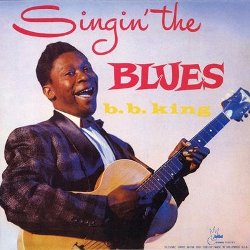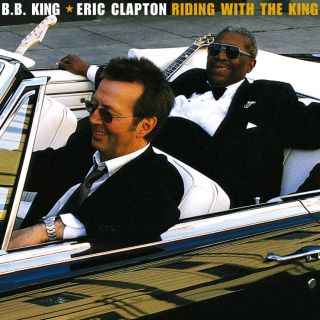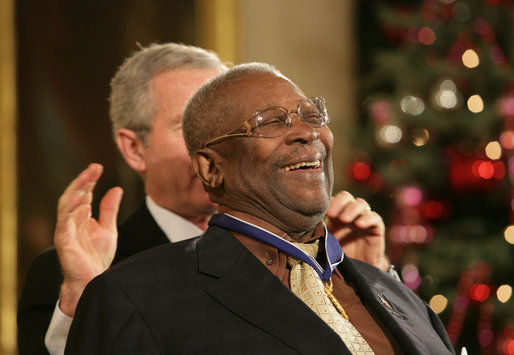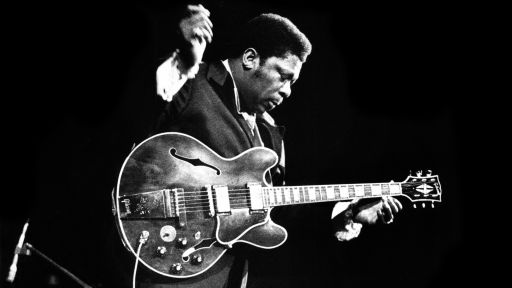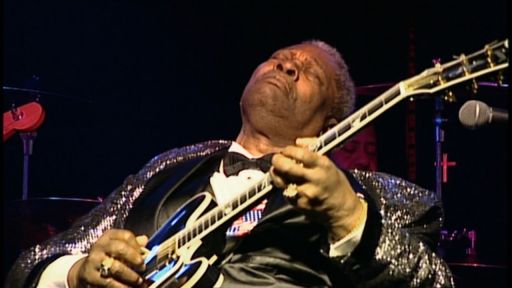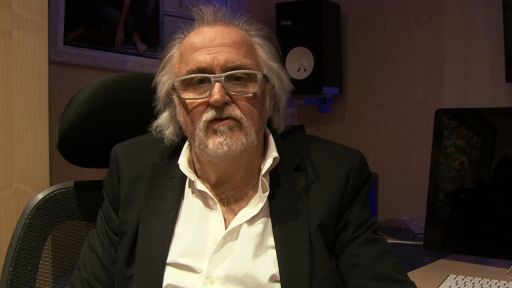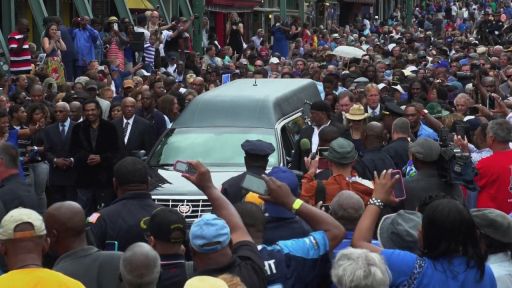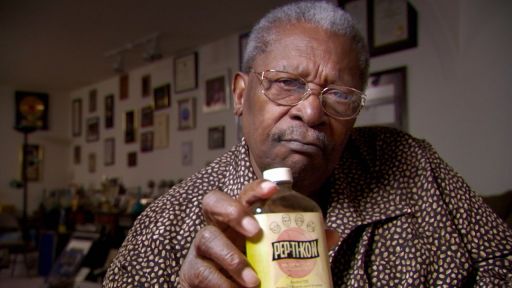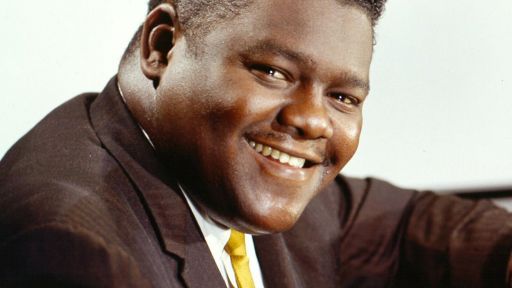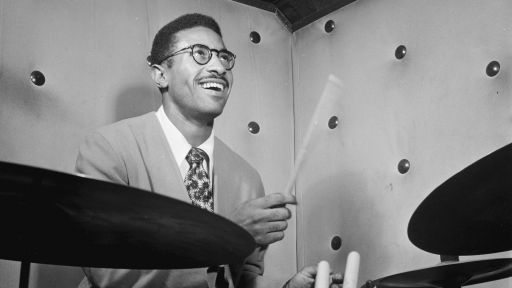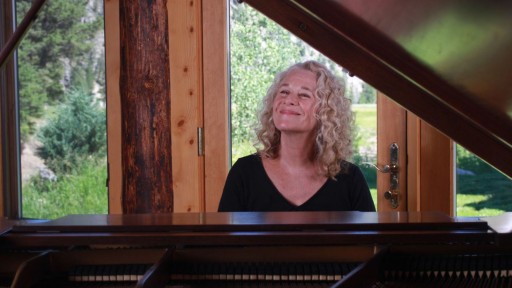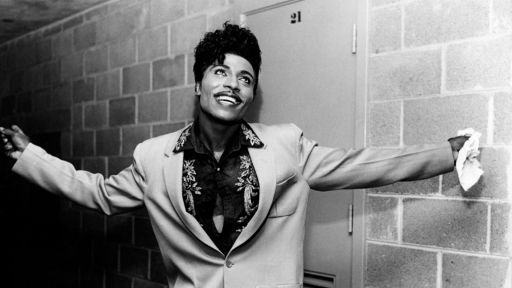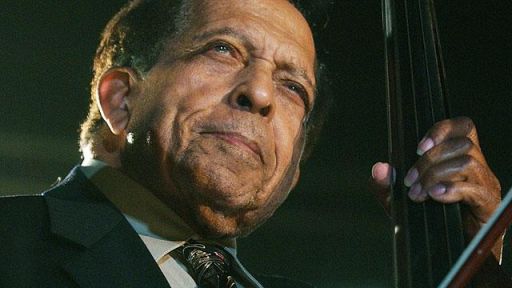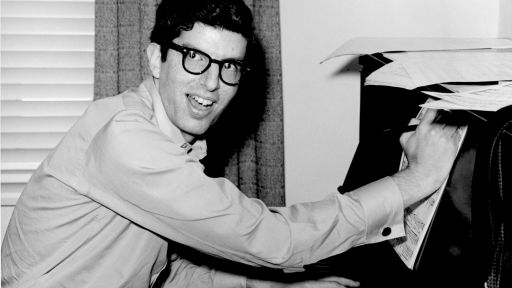Blues musician B.B. King released over 50 albums in his lifetime. With 15 Grammy Awards, the legendary guitarist holds the record for the most won in the Blues genre.
September 16, 1925
B.B. King was born Rileigh King in a cabin on the bank of Bear Creek in the tiny town of Berclair, MS, in the central Mississippi Delta; his birth did not go on record. His parents Albert King and Nora Ella King lived on the plantation of Jim O’Reilly. King was named in honor his father’s brother Riley, who vanished when Albert was a boy.
1931-33
Parents separate and King’s mother moves with Riley to hilly part of Mississippi east of the Delta to be with her extended family. For next 12 years Riley lives alternately with his mother and her new spouse, Elger Baskin, known as “Picaninee,” his grandmother, Elnora Farr, and his aunts and uncles from the Pullian clan in Kilmichael, Montgomery County.
1935
King’s mother Nora Ella dies, blind and wasted, at age 31, most likely of complications from diabetes. She had instilled in King his faith and belief in the goodness of people.
1936-1940
King lives with his grandmother and Pullian family. Church, school and hard work dominate his life. His church is Church of God In Christ (a.k.a. “Sanctified Church”), led by Reverend Archie Fair, who plays guitar in the services. Archie’s wife and King’s aunt are sisters, and when they visit, Riley is allowed to play the Reverend’s guitar. It is love at first touch.
King attends Elkhorn School, maintained by the Elkhorn Church, Primitive Baptist. Teacher Luther Henson teaches Riley to read and to be self-reliant, fair-minded, and devoted to self-improvement. Henson’s influence is life-long. The school year is bounded by the growing season and all children work in the fields. When the ground is ready for cultivation, school lets out, when the crop is harvested, school reopens. Life is hard and primitive by contemporary standards: no electricity, no indoor plumbing.
1940
After his grandmother Elnora Farr dies on January 10, Riley King must begin living the life of an adult at age 14. He and his grandmother had been sharecroppers on Edwayne Henderson’s farm, whose record show she died owing Henderson $21.75 (over five months’ living allowance). Henderson offers Riley to stay in his grandmother’s cabin and raise cotton on one acre for a monthly allowance of $2.50. Henderson farm record lists grim facts: interest charges of 8% applied quarterly; charge of 40¢ for “3 yards cotton sack; charge of 50¢ for ‘wrench;’ credit $1.00 ‘by work.’” At settlement time Riley’s return on his crop is $4.18; he owes Henderson $7.54, nearly four months’ “furnish.”
Fall, 1940
Albert King arrives and takes his son to live in Lexington, Mississippi (pop. 3,000 approx.), county seat of Holmes County. Riley meets his half-siblings and stepmother, enrolls in a coloured school.
Late 1941
Cruelty as commonplace, the humiliations of segregation, and a feeling that he is a stranger in his father’s home, compel 16-year-old Riley to get on his bicycle and ride two days (approximately 45 miles) back to Kilmichael to be reunited with his cousins and familiar surroundings.
1942
Finding his kin gone, Riley takes residence with the family of a white farmer Flake Cartledge, who live in a shack on Cartledge farm. He continues his schooling.
1943
King moves back to Indianola in the Delta, joins cousin Birkett Davis. He works as a tractor driver on Johnson Barrett’s plantation.
1944-45
Marries Martha Lee Denton (marriage ends in divorce in 1952). The young couple live with King’s cousin Birkett and wife Delicia, sharing a cabin and raising cotton on adjacent tracts. King, Birkett and three others form St. John’s Gospel Singers. King is inducted into the U.S. Army, but discharged after basic training when classified as essential to war economy, based on his skills as a tractor driver.
1947
Flees to Memphis after damaging his tractor, leaving Martha alone and a crop in the ground. King’s whereabouts are a closely held secret to prevent landowner Barrett from sending the law after Riley. King stays in Memphis with his cousin, blues singer Bukka White.
1948
Returns to Indianola to work off the debt for tractor damage, but resolves to return to Memphis.
Late 1948
King moves to West Memphis, AR, across the Mississippi River from Memphis and goes straight to radio KWEM and plays a song live on Sonny Boy Williamson’s daily program. This leads to gigs at the Sixteenth Street Grill in West Memphis. At the black-staffed and managed radio station WDIA in Memphis, TN, King lands a daily 15-minute spot as “The Peptikon Boy,” selling the alcohol-laced health tonic Peptikon.
1949-1950
Regional stardom on radio and in area joints around Tennessee, Arkansas, and Mississippi brings King to the attention of a small record label; he cuts four sides for Bullett Records. Radio spot expands, Peptikon Boy becomes “Blues Boy,” then plain “B.B.” King. Survives a near fatal bout of hepatitis. He rushes back into a fiery, burning dance hall to save his guitar, thereafter named “Lucille” as a reminder to avoid foolish risks.
1952
On February 2, B.B. signs with Universal Attractions booking agency, goes on tour with stops at Washington, D.C.’s Howard Theatre, Baltimore’s Royal Theatre, Chicago’s Regal Theatre and Harlem’s Apollo Theater. B.B. rises to the challenge of a new kind of audience and wins wide acceptance and affection across the national network of big city theaters, southern juke joints and road houses called the Chitlin’ Circuit.
He and Martha King divorce. They have no children from the marriage.
1953
B.B. King leaves the roster of DJ’s at WDIA in Memphis. Touring has too big a claim on his time.
1955
Forms first big “B.B. King Band,” buys first bus, “Big Red.” Touring compliment of 16 people includes Walker brothers (bus driver Cato, and bassist “Shinny”), Evelyn “Mama Nuts” Young, drummer Earl Forest (songwriter of “Next Time You See Me”).
1956
King and his band reportedly play 340 one-night engagements.
1958
Marries Sue Hall, daughter of proprietress of Club Ebony, in Indianola, Mississippi. Rev. Clarence LaVaughn Franklin, Aretha Franklin’s father, presides over the ceremony in Detroit, MI. Sue takes up life on the road with her famous husband. In time, they buy a home in Los Angeles. B.B. is rarely there (marriage ends in divorce in 1966).
“Big Red,” B.B.’s touring bus, collides with a butane truck on a bridge in Texas. Truck driver and passenger die in the fiery wreck. All on the bus are safe. Terrible timing: the company insuring the bus was suspended a day or two before the accident, leaving B.B. personally liable, though he was not present. The settlement puts B.B. in debt for years.
1963
Records “How Blue Can You Get?” written by jazz critic Leonard Feather. The song becomes one of B.B.’s most recognizable signature songs, with its punch line lyric “I gave you seven children/And now you wanna give ‘em back.”
1964
Records Live At The Regal, the album that eventually secures his stature as King of The Blues for decades to come.
1966
Bad things come in threes: The IRS slaps a $78,000 lien on B.B.’s income for back taxes owed, Sue King files for divorce, and his bus is stolen.
ABC-Paramount begins issuing B.B. King recordings on BluesWay, the new label devoted to blues artists. Records live album in Chicago club Blues Is King, long to be hailed as among his finest works. B.B. is still virtually unknown to white audiences.
1968
Following a dispute over money with business manager Lou Zito, B.B. fires Zito and hires Zito’s accountant, Sidney Seidenberg, as his new manager. Seidenberg signs B.B. with Associated Booking, the powerhouse agency run by show business legend Joe Glaser. Glaser manages the likes of Louis Armstrong and Fats Domino.
On June 8, B.B. plays the Filmore Auditorium in San Francisco, the rock palace owned by impresario Bill Graham. B.B. is introduced as the “King of the Blues” and is given his first standing ovation as he walks on stage. Coming from his first predominantly white audience, it is clear that B.B. King has arrived in mainstream pop culture. On July 27, B.B. plays the Newport Folk Festival in Newport, RI.
1969
BluesWay records two B.B. King albums, Live and Well, and Completely Well, both produced by Bill Szymczyk. The second includes a track recorded with strings, an adaptation of Roy Hawkins, “The Thrill Is Gone.” It reaches #3 on the R&B charts and #15 on the Pop charts. Its success on the Pop charts seals B.B.’s reputation as a general audience entertainer and the tune becomes his best known song.
1970
“The Thrill Is Gone,” earns B.B. his first Grammy Award for Best Male R&B Vocal Performance. B.B.’s exposure and recognition expand rapidly. B.B. King opens 18 American concerts for the Rolling Stones. B.B. plays before dozens of audiences that only a short time before were completely inaccessible to him.
1971
King begins his first overseas tour. Releases B.B. in London album, which includes Ringo Starr. B.B. seals his new won fame with an appearance on The Ed Sullivan Show. Twenty million Americans see B.B. King perform “Thrill Is Gone.”
1984
King is inducted into the Blues Foundation Hall of Fame.
1987
King is inducted into the Rock and Roll Hall of Fame and receives a Lifetime Achievement Grammy Award.
1988
For the Rattle and Hum album, the Irish rock group U2 records “When Love Comes to Town” with B.B. King in Memphis. He opens for the band on a four-month world tour.
1990
King is awarded the National Medal of Arts.
1995
King receives the Kennedy Center Honors.
1996
B.B. King’s autobiography, Blues All Around Me (written with David Ritz for Avon Books), is published.
2000
Records Riding With The King with Eric Clapton. Album goes double-platinum (2,000,000 in certified sales), and wins the Grammy for Best Traditional Blues Album. B.B. King has his first blockbuster hit record.
February 15, 2005
Mississippi Senate and House of Representatives honor B.B. King with a joint resolution saluting him as a favorite son. B.B. appears at a joint session of House and Senate as the proclamation is read out, Governor Haley Barbour presiding. February 15 is declared B.B. King day in the state.
June 10, 2005
Ground breaking for the B.B. King Museum to be built in Indianola, MS. Former governors, leaders of Mississippi House and Senate, and town officials salute him, then, together they break ground.
December 15, 2006
President George W. Bush presents King with the Presidential Medal of Freedom.
September 2008
The B. B. King Museum and Delta Interpretive Center opens in Indianola, MS.
May 14, 2015
B.B. King dies in Las Vegas at the age of 89.

